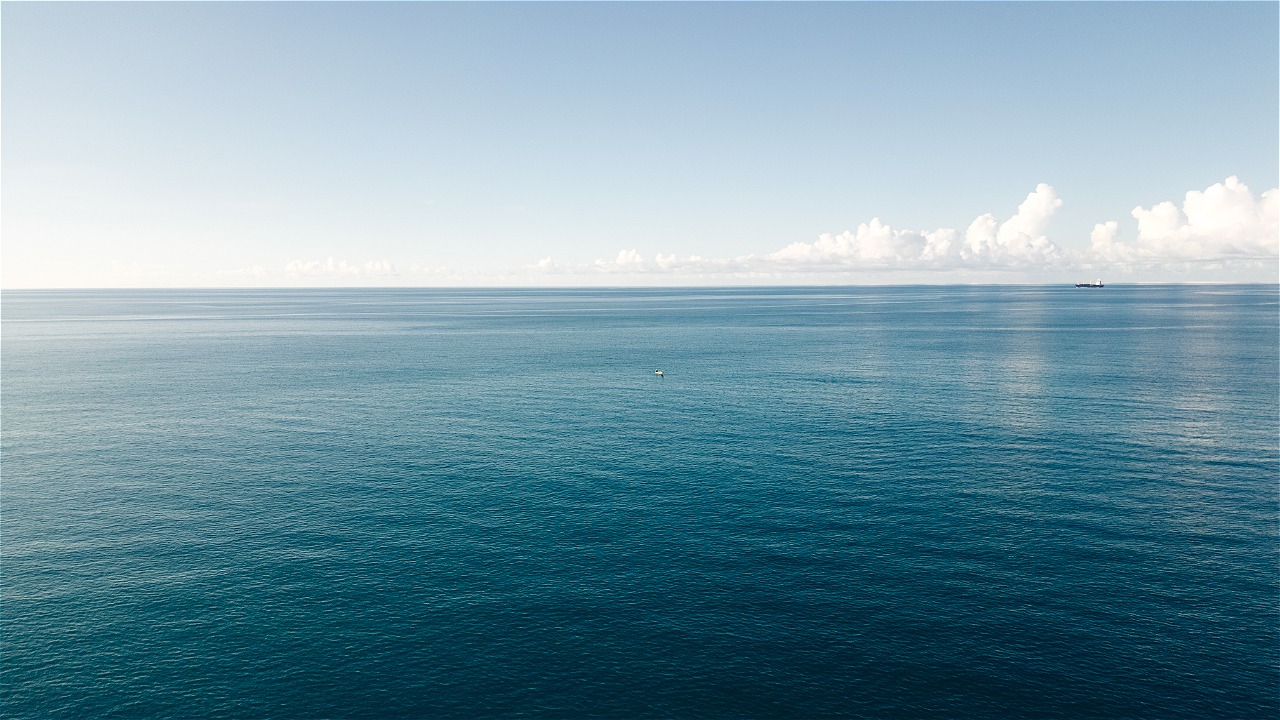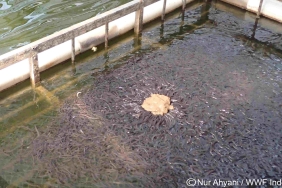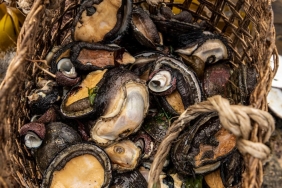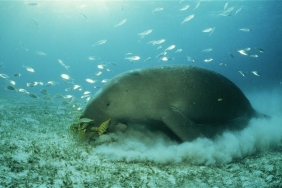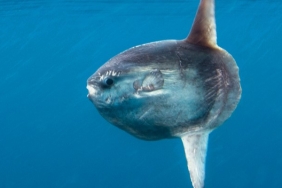XPDCSAIRERI: THE HOSPITALITY AND WARMTH OF THE AMBAI COMMUNITY
By: Natalia Trita Agnika
That afternoon, Wednesday (08/06), WWF-Indonesia's Saireri Expedition team arrived at Ambai I Village, Yapen Islands Regency to collect socio-economic data, village profile, and potential natural resources. This village is very unique. The houses located on the coast have a building form that is supported by a lot of wood. Because of the large amount of wood and the close spacing, the houses are also called "thousand foot houses."
We visited Ambai I Village using Remora boat (the name of the speedboat accompanying KM. Gurano Bintang -Red). When we stepped into the village, we thought of the fishing village in Labuan Bajo. The connecting road in the village is a wooden bridge that has branches of small bridges in each house. It takes a lot of balance to enter people's houses. Sometimes, the wood shifts or sways. My heart was racing because the bridge was quite high and the water was low. After gaining courage, I stepped across the bridge. But in the middle of the bridge, my footsteps stopped because fear overcame me. Suddenly, a man approached me and immediately held my hand. "It's okay, just walk," he said, leading me to the end of the bridge. His friendliness encouraged me to cross to the end to the village chief's house.
I experienced the same thing again when visiting one of the houses. A woman asked me to wait a moment. It turned out that she had brought me a piece of bamboo to stack on the bridge so that it would be sturdier when I passed. I was really impressed by her welcome and kindness to us who were practically strangers.
While waiting for the other teams who had not finished collecting data, I took a walk around Ambai I Village. My attention was drawn to one house that had a small flower garden in its yard. Chrysanthemums and some ornamental plants are planted on jerry cans and used paint cans. This is quite a rare sight, considering that they live above sea water. "Every morning and evening I water my flowers. I like to plant flowers to make them beautiful," explained the mother who owns the flower garden.
After that, my attention is diverted by the sound of children coming from under the bridge. There were two children, a boy and a girl who were laughing cheerfully while carrying a teapot. Melba and Peter were their names. Barefoot, they search for and collect crabs from the mud under the bridge. When the tide recedes, what remains is black mud filled with crabs. Their catch is collected in a teapot.
Melba and Peter's house was apparently being visited by one of the Saireri Expedition team. Two friends and I are invited to taste the crabs caught by the two 3rd graders, which are then boiled by their grandmother, Yosina Mabuai. But to get to her house, I again have to cross a small bridge made of two wooden slats and bamboo. This time the bridge is longer and without a handrail. A look of panic immediately appears on my face. Unexpectedly, the grandmother came with a long piece of wood to be used as a handrail. Finally, I crossed the bridge by holding onto the wood stuck in the ground. In the middle of the bridge, I couldn't lift the wood to move it to the rest of the bridge. The grandmother again helped to pull out the wood and move it so that I could continue my journey to the terrace of my house. It was a shame that my strength and courage were inferior to hers.
While chatting, we waited for the crabs to cook. Melba, a 3rd grader at SD YPK Imanuel Ambai, wants to be a teacher. She also told us that if she wants to watch television, she has to go to a neighbor who has a television and watch the show that the owner of the house likes. Grandma Yosina helped cut the cooked crab and served it to us. Hmm, it tasted amazing, sweet and fresh. Melba and Peter told us that they can still easily catch crabs and shrimps in their yard.
In addition to crabs, we also ate grilled sago wrap made by Yosina's neighbor. The Papuan culinary specialty is made from a mixture of sago, grated cassava, grated coconut, and sugar wrapped in bamboo leaves and then grilled. This food is delicious when warm. We brought the warmth of the Ambai people's welcome to KM. Gurano Bintang as an encouragement to continue the expedition. "Thank you, mama and grandmother, I hope to see you again," I said, shaking Yosina's hand tightly. "Thank you too. We meet through prayer," she replied. Yes, we pray that the nature of Papua will be preserved and that Grandma Yosina and the people there will live in prosperity.

